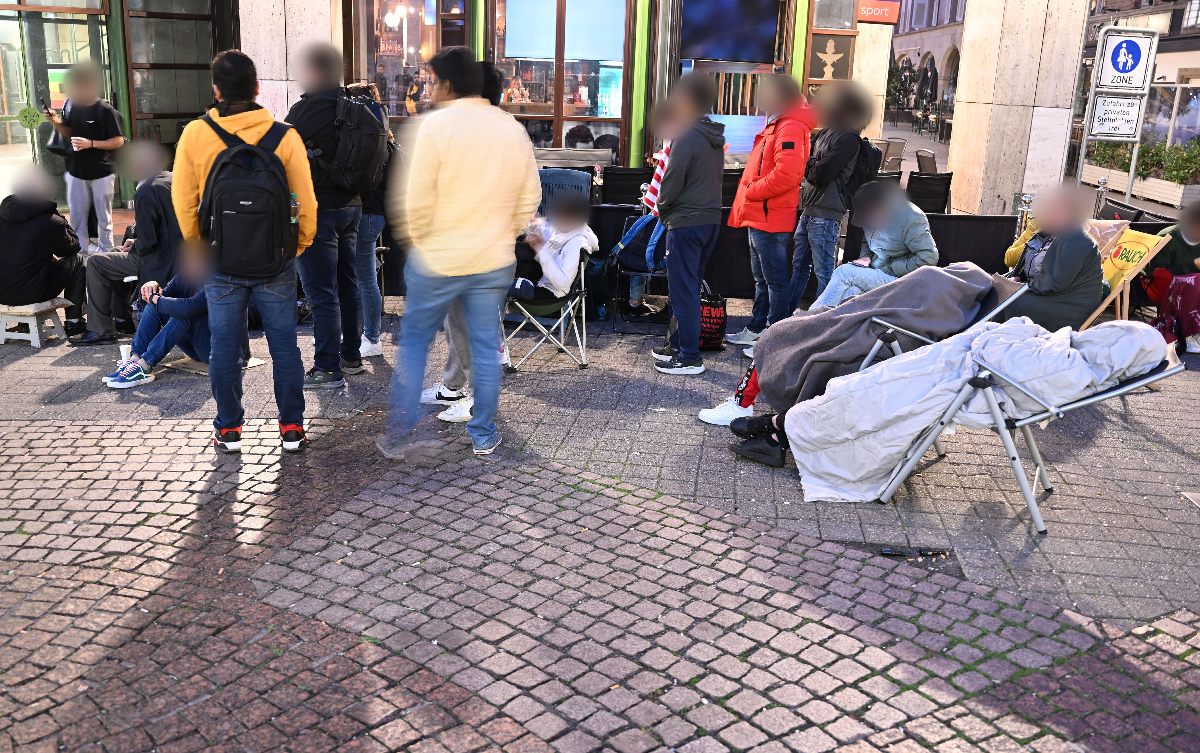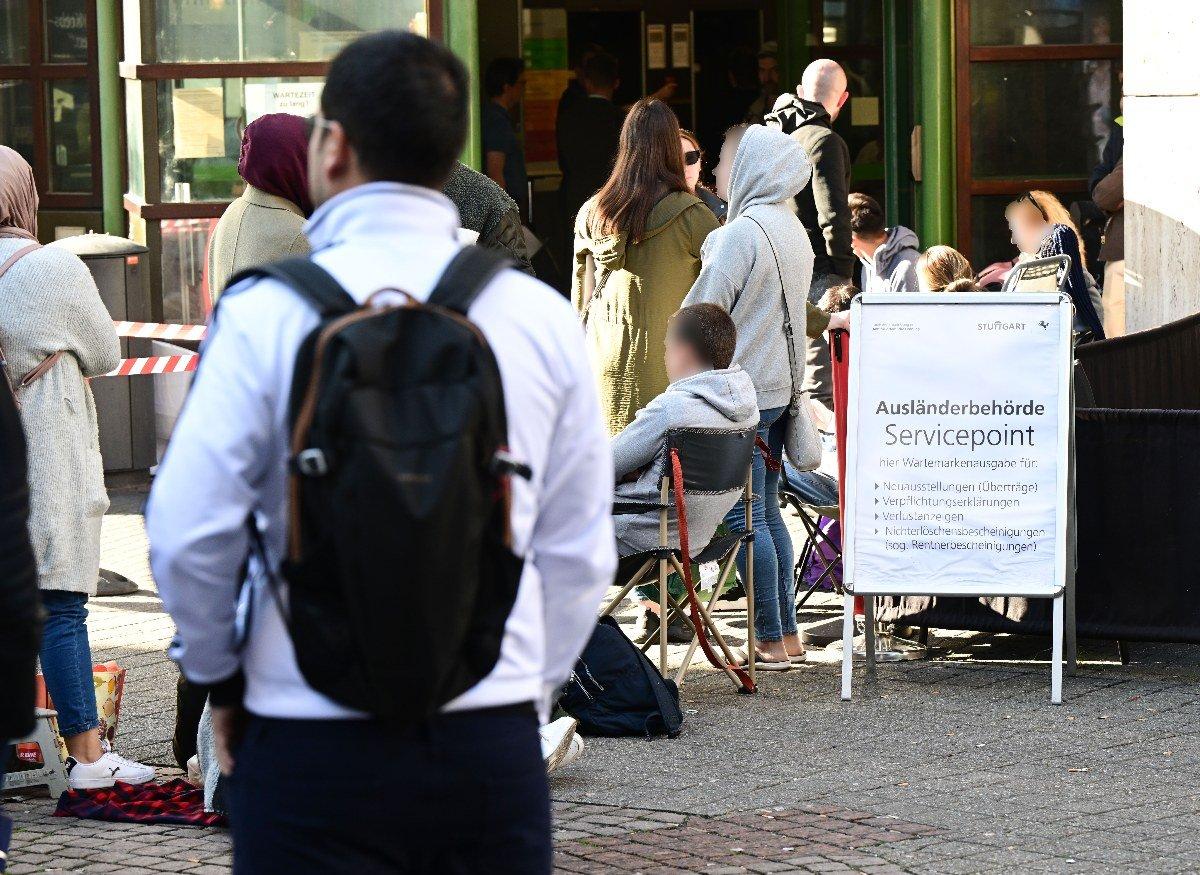Germany passed far-reaching immigration law reforms this summer aimed at making it easier for non-EU nationals to come to Germany to live and work.
The first amendments, which will make it easier to get an EU Blue Card in Germany, come into force in November, while other parts of the law will follow next year. Will the reform make life easier for non-EU nationals eyeing up Germany as a long-term home?
"At the moment, immigration is only possible for skilled workers if you have a recognised degree or recognised vocational training," immigration lawyer Sven Hasse said in an interview, which we aired an extract from on The Local's Germany in Focus podcast. "And that is intended to change. In future it will be okay if you have a foreign degree, and the recognition can either be done in Germany, or you could even get a residence permit without formal recognition.
"The requirement is that the degree they have is already recognised in their country, and they have two years of professional experience in the last five years. So you see there are a lot of conditions in the law. That is typically German, I'd say."
These changes are planned to come into force in March 2024.
PODCAST: Will Germany's new immigration law really make life easier for foreigners?
Later in June 2024, Germany is set to introduce the Chancenkarte or 'Opportunity Card' visa. This will allow people people to come to Germany for up to a year and look for a job.
"This is a point-based system, a little bit like the Canadian system," said Hasse. "To be eligible to start your application, you need a foreign degree, which is recognised from the country where it is from and you need German language skills at basic A1 level or English language skills at B2 level.
"And if you have that, you can start the process and you can gain points. Points are awarded for professional qualification, experience, language skills, age, and even previous stays in Germany with with a residence permit. So this is new from June 24th, although it is not really clear yet how it works and who's responsible for awarding these points. So this is still an open question."
READ ALSO: When will Germany's new immigration rules come into force?
'Bureaucracy is the biggest issue'
Hasse told The Local that the biggest problem he foresees with the reforms is issues with paperwork and the processing of applications at German consulates abroad and at immigration offices (Ausländerbehörden) within the country.
As The Local has reported, many foreign residents say they struggle to get an appointment at their local Ausländerbehörde, with some complaining that they are treated unfairly.
At Stuttgart, reports have emerged in recent months of people queueing for more than 12 hours to try and get seen by immigration case workers.
READ ALSO:
- Stuttgart's immigration office blasted for 'unbearable' conditions
- 'Traumatising': Foreign residents share stories from German immigration offices

Each German state is responsible for the workings of its own immigration offices, which means there can be different rules and varying experiences.
"So bureaucracy is the biggest issue I think, when bringing (the law) into force," said Hasse. "We have to say that we see a lot of dysfunctional immigration authorities in Germany. You have a lot of waiting times for visa appointments, unanswered emails in their inboxes. So depending on the authority, some say 'we have 30,000 unanswered emails', and you can't get in contact with them.
"And the reason is, they have a shortage of skilled workers at skilled immigration offices as well. And that is the biggest problem. And I don't see that the change in law changes this problem."
The immigration lawyer said his clients struggle to get their residence permits renewed.
"You can't get an appointment - your residence permit runs out, you apply for an extension by using the contact forms of the authorities," he said. "And then, well, they tell you, 'you can stay and you can wait until we get back to you'. But a lot of my clients want to travel in the meantime."
Hasse said he believes the situation will get worse as more people from abroad apply to come and work in Germany, as the immigration reforms aim to achieve.
“This is the biggest problem skilled workers face and there is not really a remedy,” said Hasse. “So I think the legal situation is not so bad. But the authorities are not very well equipped to handle the applications.
"There are reasons for it of course," he added, mentioning the large number of refugees coming into Germany.
"But yeah, one has to maximise the capacity of the authorities," said Hasse. "There is no other way. Maybe digitalisation helps a little bit, but that's nothing you can decide today and it changes the situation tomorrow."

Join the conversation in our comments section below. Share your own views and experience and if you have a question or suggestion for our journalists then email us at [email protected].
Please keep comments civil, constructive and on topic – and make sure to read our terms of use before getting involved.
Please log in here to leave a comment.